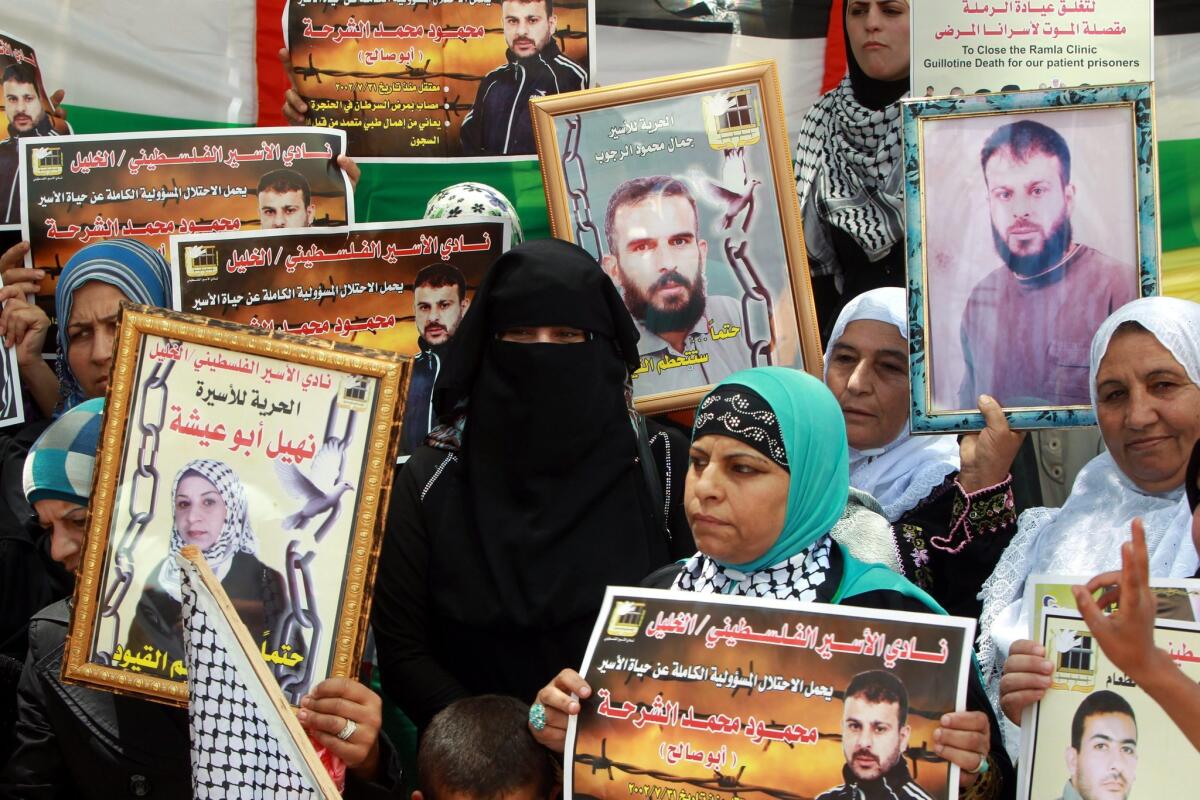Israel reportedly OKs prisoner release, but not settlement freeze

JERUSALEM – As part of a U.S.-backed proposal to restart peace talks, Israel has agreed to release an unspecified number of Palestinian prisoners, but will not freeze settlement construction in the West Bank, a top Israeli official said Saturday.
The comments came a day after U.S. Secretary of State John F. Kerry announced that he was close to a formalizing an agreement to bring Israelis and Palestinians back to the negotiating table for the first time in three years.
Though Kerry pleaded with both sides to keep the details of the pending agreement confidential and allow him to be the only source of information, both sides scrambled Saturday to put their own spin on the deal. Since Kerry has declined to release specifics about what he says he brokered on Friday, the conflicting claims could not be confirmed.
Intelligence Minister Yuval Steinitz said Israel would release some “hardcore” Palestinian prisoners who had already served many years behind bars for crimes allegedly committed against Israel. A prisoner release was one of Palestinian Authority President Mahmoud Abbas’s key demands and some Palestinian officials said as many as 350 prisoners are expected to be released.
Reports that Israel was on the verge of releasing prisoners as a goodwill gesture have surfaced many times in recent years, but have rarely been carried out.
A prisoner release would appear to contradict previous assertions by Israeli Prime Minister Benjamin Netanyahu that peace talks should resume without any “preconditions.” Several right-wing members of his coalition government cautioned Netanyahu against releasing prisoners.
“We must learn from past mistakes and not release terrorists with blood on their hands as a gesture or reward,” said Deputy Defense Minister Danny Danon.
Steinitz told Israel Radio that the release would be conducted in stages. In return, he said, Palestinians promised they would remain in peace talks for at least nine months and hold off on their threat to take legal actions against Israel in United Nations agencies or the International Criminal Court.
But he said Israel refused to commit to a freeze on Jewish settlements in East Jerusalem and the West Bank, another key demand of Abbas. Nor would Israel agree to negotiate on the basis of the Green Line, the border that existed before Israel seized the West Bank and East Jerusalem during the 1967 Middle East War, he said.
Palestinian officials, however, insisted that Israel had agreed to refrain from issuing new tenders for settlement construction, though it will not publicly declare a freeze, according to wire reports and Arab media. And they say Kerry promised that new talks, if they resume, will use the 1967 lines as a starting point.
The public jockeying reflects mounting anxiety on both sides after Kerry’s sudden announcement Friday that the U.S. would resume direct talks in Washington, perhaps as soon as next week.
The declaration came as a surprise to both sides, since neither has yet publicly endorsed the framework that Kerry proposed.
Palestinian officials openly dismissed his plan as insufficient, but said Palestinians agreed to the Washington meeting to avoid insulting the American diplomat.
Privately, Israelis have expressed similar doubt about Kerry’s proposal.
On Saturday, Netanyahu issued a carefully worded statement in which he welcomed the “resumption of the diplomatic process. … I expect that the talks will be conducted in a serious and responsible manner.”
ALSO:
Beijing bombing suspect: Years of grievances over harsh treatment
Why did a Russian court reverse itself on Alexei Navalny?
Australian leader Kevin Rudd’s asylum shift tied to upcoming election
More to Read
Start your day right
Sign up for Essential California for news, features and recommendations from the L.A. Times and beyond in your inbox six days a week.
You may occasionally receive promotional content from the Los Angeles Times.






